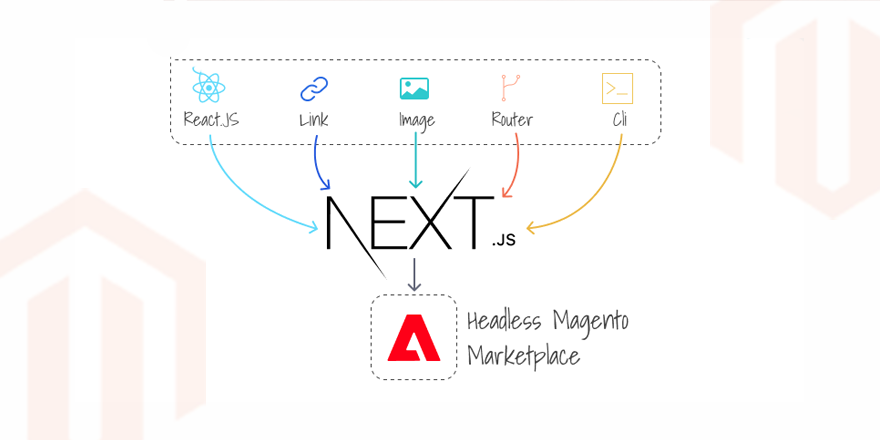Unlocking the Power of Headless E-Commerce with Next.js and Magento2

Headless technologies involve decoupling the front-end and back-end of a web application, allowing developers to build highly flexible and scalable systems. In this context, combining Next.js with Magento 2 is a powerful approach to building e-commerce websites.
Next.js
Next.js is a popular React framework that enables server-side rendering, static site generation, and API routes. It provides a great developer experience with features like:
- File-based routing: Simplifies navigation and URL structure.
- SSR & SSG: Offers both Server-Side Rendering and Static Site Generation for optimized performance.
- API routes: Allows building API endpoints within the same project.
- Fast refresh: Enhances development with quick updates.
Magento2
Magento 2 is a robust, open-source e-commerce platform that offers extensive features for online stores, including product management, inventory, checkout processes, and more. It is a back-end heavy system designed for large-scale e-commerce solutions.
Combining Next.js with Magento 2
Headless architecture allows using Magento 2 as a back-end service, handling all the heavy lifting for e-commerce functionalities, while Next.js serves as the front-end, delivering a modern, fast, and responsive user experience.
Key Benefits:
- Performance: Next.js can significantly improve page load times, especially when using static site generation.
- Flexibility: You can create a highly customized front-end without being restricted by Magento’s default themes.
- SEO: Server-side rendering in Next.js improves SEO by ensuring that search engines can easily crawl and index the site.
- Scalability: Decoupling the front-end allows independent scaling of the back-end (Magento 2) and front-end (Next.js).
Implementation Overview:
- Data Fetching: Use Magento’s REST or GraphQL APIs to fetch data like products, categories, and checkout information in Next.js.
- Front-End Customization: Build custom pages in Next.js to display products, manage the cart, and handle the checkout process.
- State Management: Utilize tools like Redux or Context API to manage state across the application.
- Authentication: Implement customer authentication by integrating Magento’s OAuth or using custom JWT solutions.
- Deployment: Deploy Next.js on platforms like Vercel or AWS, and Magento 2 on a separate server or cloud service.
This setup provides the agility to update the front-end independently, giving users a fast, modern experience while leveraging Magento 2’s robust e-commerce capabilities.


